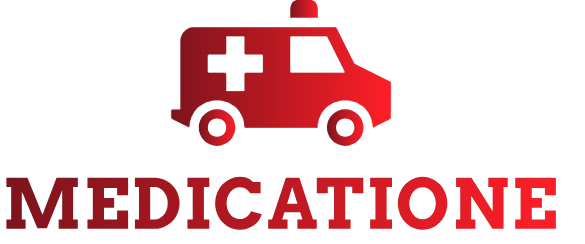Collagen is a buzzword in the health and beauty industry, celebrated for its ability to enhance skin elasticity, support joint health, and contribute to overall wellness. Traditionally, collagen supplements have been derived from animal sources, such as bovine (cows), porcine (pigs), or marine (fish) collagen. However, as more people adopt plant-based lifestyles for ethical, environmental, and health reasons, the demand for vegan alternatives has surged. This has led to the emergence of vegan collagen, a product that aligns with these values while promising similar benefits. In this article, we will explore what vegan collagen is, how it works, its benefits, and why it represents the future of the supplement industry.
Understanding Collagen
What is Collagen?
Collagen is the most abundant protein in the human body, accounting for approximately 30% of the body’s protein content. It is a key structural component in various connective tissues, including skin, tendons, ligaments, and bones. There are at least 16 types of collagen, but the most common are Types I, II, and III, which make up around 80-90% of the collagen in the body.
Collagen is known for providing structure and strength to the skin, enabling it to maintain elasticity and firmness. It also plays a crucial role in joint health, supporting the cartilage that cushions joints and helps them move smoothly.
The Role of Collagen in the Body
The primary function of collagen is to provide structural support. It acts like a glue that holds the body together, forming a scaffold to give strength and elasticity to skin, muscles, bones, and connective tissues. As we age, the body’s natural collagen production declines, leading to signs of aging such as wrinkles, sagging skin, and joint discomfort. This decline has driven interest in collagen supplements, traditionally derived from animal sources.
The Problem with Animal-Derived Collagen
Ethical Concerns
One of the primary concerns with traditional collagen supplements is their animal origin. Collagen is typically extracted from the bones, skin, and connective tissues of animals. For vegans and vegetarians, this presents an ethical dilemma. The use of animal-derived collagen contradicts the principles of a plant-based lifestyle, which seeks to avoid the exploitation of animals.
Environmental Impact
The production of animal-based collagen also has significant environmental implications. The livestock industry is a major contributor to greenhouse gas emissions, deforestation, and water consumption. The extraction of collagen from animal sources is often linked to factory farming, which exacerbates these environmental concerns.
Health Concerns
There are also health concerns associated with consuming animal-derived collagen. Since collagen is often sourced from factory-farmed animals, there is a risk of contamination with harmful substances like antibiotics, hormones, and heavy metals. Additionally, some individuals may experience allergic reactions to animal-derived collagen, further limiting its appeal.
The Emergence of Vegan Collagen
What is Vegan Collagen?
Vegan collagen is a plant-based alternative to traditional animal-derived collagen. However, it’s important to note that true collagen cannot be found in plants. Instead, vegan collagen products typically contain ingredients that either stimulate the body’s natural collagen production or provide the building blocks necessary for the body to produce collagen.
These products often include a combination of vitamins, minerals, and plant-based proteins that work synergistically to support collagen synthesis. Some vegan collagen supplements may also contain synthetic or lab-grown collagen, produced using genetically modified yeast or bacteria.
How Vegan Collagen Works
Vegan collagen works by providing the nutrients and compounds necessary for the body to produce collagen naturally. Key ingredients commonly found in vegan collagen supplements include:
- Vitamin C: Essential for collagen synthesis, vitamin C plays a critical role in the formation of collagen fibers. It also acts as an antioxidant, protecting the skin from free radical damage.
- Amino Acids: The building blocks of proteins, amino acids like glycine, proline, and lysine are crucial for collagen production. These can be sourced from plant-based proteins like legumes, nuts, and seeds.
- Silica: A trace mineral that supports the synthesis of collagen by promoting the formation of collagen cross-links, which give the protein its strength and resilience.
- Hyaluronic Acid: Often included in vegan collagen supplements, hyaluronic acid helps retain moisture in the skin, contributing to a plump and youthful appearance.
- Antioxidants: Compounds like vitamin E, zinc, and selenium protect collagen from oxidative stress and enhance its production.
The Science Behind Vegan Collagen
The body naturally produces collagen through a process that involves the conversion of specific amino acids into collagen fibers. This process is heavily dependent on the availability of certain nutrients, particularly vitamin C and amino acids like glycine and proline. By providing these nutrients through diet or supplementation, it is possible to enhance the body’s natural collagen production.
While traditional collagen supplements provide pre-formed collagen, vegan collagen supplements take a different approach by stimulating the body’s own collagen production. Although research on vegan collagen is still in its early stages, preliminary studies suggest that it can be effective in promoting skin health, reducing wrinkles, and supporting joint function.
Benefits of Vegan Collagen
Ethical and Sustainable
One of the most significant advantages of vegan collagen is that it aligns with ethical and environmental values. By avoiding animal products, vegan collagen reduces the demand for factory farming and minimizes the environmental impact associated with animal agriculture. This makes it a more sustainable choice for individuals concerned about the planet and animal welfare.
Safe and Allergen-Free
Vegan collagen is generally considered safer and less likely to cause allergic reactions compared to animal-derived collagen. Since it is sourced from plants, it is free from common allergens like dairy, eggs, and seafood. Additionally, vegan collagen is less likely to be contaminated with harmful substances like antibiotics or hormones, making it a cleaner and safer option.
Supports Natural Collagen Production
Unlike animal-derived collagen, which provides pre-formed collagen, vegan collagen stimulates the body’s natural collagen production. This approach is thought to be more effective in the long term, as it supports the body’s ability to produce and maintain collagen levels naturally.
Promotes Overall Skin Health
Vegan collagen supplements often contain a variety of skin-loving ingredients, including antioxidants, vitamins, and minerals. These compounds not only support collagen production but also promote overall skin health. For example, vitamin C is known to brighten the skin, reduce the appearance of dark spots, and protect against sun damage.
Joint Health and Mobility
In addition to skin benefits, vegan collagen can also support joint health. The amino acids and other nutrients found in vegan collagen supplements help maintain the integrity of cartilage, reduce inflammation, and promote joint mobility. This makes vegan collagen a valuable supplement for individuals with arthritis or other joint-related conditions.
Compatibility with Various Diets
Vegan collagen is suitable for a wide range of dietary preferences, including vegan, vegetarian, kosher, and halal diets. This makes it a versatile option for individuals with specific dietary needs or restrictions.
Vegan Collagen vs. Traditional Collagen: A Comparison
Efficacy
One of the main questions surrounding vegan collagen is whether it is as effective as traditional animal-derived collagen. While more research is needed, existing studies suggest that vegan collagen can be effective in promoting skin and joint health, particularly when combined with a healthy diet and lifestyle.
However, it’s important to note that vegan collagen supplements work differently from traditional collagen supplements. Rather than providing pre-formed collagen, vegan collagen supports the body’s natural collagen production. This means that the results may take longer to appear, but they may also be more sustainable in the long run.
Bioavailability
Bioavailability refers to the extent to which a nutrient can be absorbed and used by the body. Traditional collagen supplements provide collagen peptides, which are highly bioavailable and easily absorbed. In contrast, vegan collagen supplements provide the nutrients needed for collagen production, which the body must then convert into collagen.
While this process may be less direct, the bioavailability of vegan collagen can be enhanced by choosing supplements that contain synergistic ingredients, such as vitamin C, silica, and hyaluronic acid.
Cost
Vegan collagen supplements are often more expensive than traditional collagen supplements. This is partly due to the cost of sourcing high-quality plant-based ingredients and the more complex manufacturing process involved in creating vegan collagen. However, the higher cost is often justified by the ethical, environmental, and health benefits associated with vegan collagen.
Availability
As the demand for vegan products continues to grow, vegan collagen supplements are becoming more widely available. They can be found in health food stores, online retailers, and even some mainstream supermarkets. However, they are still less common than traditional collagen supplements, so it may require a bit more effort to find the right product.
Choosing the Right Vegan Collagen Supplement
Key Ingredients to Look For
When choosing a vegan collagen supplement, it’s important to look for products that contain key ingredients that support collagen production. These may include:
- Vitamin C: Essential for collagen synthesis and overall skin health.
- Amino Acids: Particularly glycine, proline, and lysine, which are crucial for collagen formation.
- Silica: Supports the strength and resilience of collagen fibers.
- Hyaluronic Acid: Enhances skin hydration and elasticity.
- Antioxidants: Protect collagen from oxidative stress and enhance its production.
Quality and Purity
Look for supplements that are made from high-quality, organic, and non-GMO ingredients. It’s also important to choose products that are free from artificial additives, preservatives, and fillers. Checking for third-party testing or certifications can also provide assurance of the product’s quality and purity.
Brand Reputation
Choose a reputable brand that is transparent about its sourcing and manufacturing practices. Reading customer reviews and testimonials can also provide insight into the product’s effectiveness and overall quality.
The Future of Vegan Collagen
Innovations in Vegan Collagen Production
The future of vegan collagen looks promising, with ongoing research and development leading to innovative new products. One exciting area of research is the use of bioengineering to produce lab-grown collagen. This involves using genetically modified yeast or bacteria to produce collagen proteins that are identical to those found in humans.
This technology has the potential to revolutionize the collagen industry, providing a sustainable and ethical alternative to animal-derived collagen without sacrificing efficacy.
Growing Demand and Market Trends
The demand for vegan collagen is expected to continue growing as more consumers adopt plant-based lifestyles and become more conscious of the ethical and environmental impact of their choices. This trend is likely to drive further innovation and expansion in the vegan collagen market, with more products and options becoming available.
Potential Challenges
Despite the many benefits of vegan collagen, there are also challenges to consider. One of the main challenges is the need for more research to validate the efficacy of vegan collagen compared to traditional collagen. Additionally, the higher cost of vegan collagen may be a barrier for some consumers.
However, as the market continues to grow and evolve, it is likely that these challenges will be addressed, leading to more affordable and effective vegan collagen products.
Conclusion
Vegan collagen represents an exciting and innovative alternative to traditional animal-derived collagen. It offers a solution that aligns with ethical and environmental values while providing the benefits of enhanced skin health, joint support, and overall wellness. As research continues to advance and consumer demand grows, vegan collagen is poised to become a staple in the supplement industry, offering a sustainable and ethical option for those seeking to support their health and beauty naturally. Whether you are vegan, vegetarian, or simply looking for a more ethical and sustainable alternative, vegan collagen is a choice worth considering.

